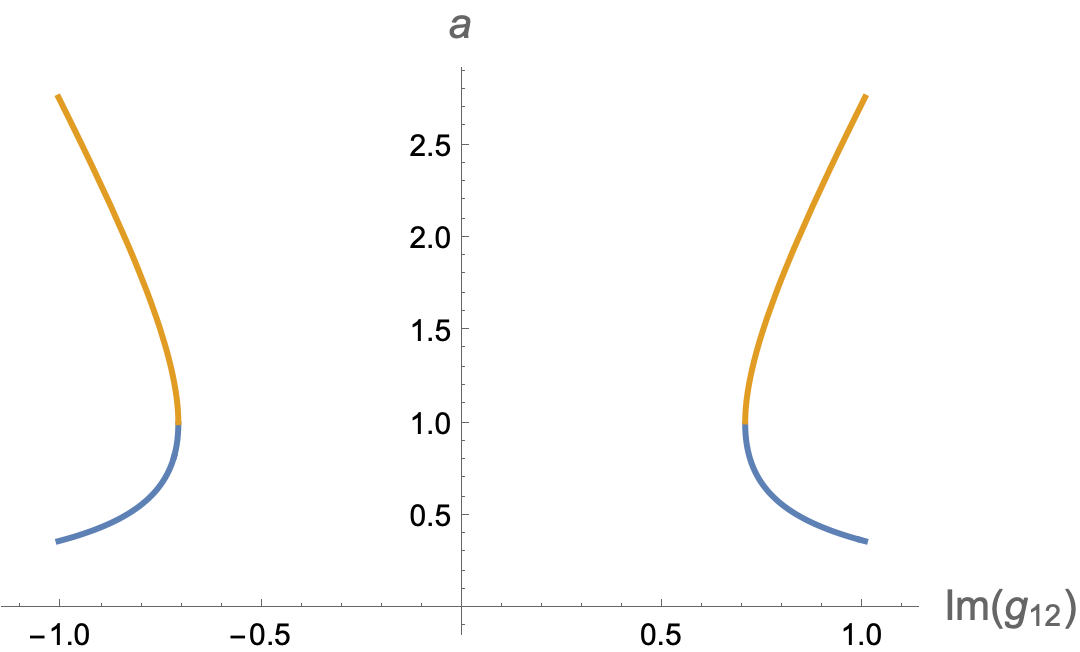I am trying to solve the following equation numerically.
NSolve[1/4 == 1/((3 + a) (a + 1)) + a^2/((3 a + 1) (a + 1)) + 1/((3 + a) (a + 1)) 1/4 (-1 + Sqrt[-1 - 2 a (1 + a) g12^2]) + a^2/((3 a + 1) (a + 1)) 1/4 (-1 + Sqrt[-1 - (2 (a + 1) )/a^2 g12^2]),a] Where g12 is just a constant. Mathematica gives the solution in terms of Root[...] terms like
a -> Root[ 1. + (10. - 4. g12^2) #1 + (65. - 8. g12^2 + 4. g12^4) #1^2 + (224. - 32. g12^2 - 24. g12^4) #1^3 + (510. - 1016. g12^2 + 60. g12^4) #1^4 + (428. - 1976. g12^2 - 80. g12^4) #1^5 + (510. - 1016. g12^2 + 60. g12^4) #1^6 + (224. - 32. g12^2 - 24. g12^4) #1^7 + (65. - 8. g12^2 + 4. g12^4) #1^8 + (10. - 4. g12^2) #1^9 + #1^10 &, 1] And I don't know how to deal with such a term. I have tried solving the equation in Root directly or stuff like N[Root[...]], but nothing works, and the term stays unchanged. How can I get an actual tangible result out of that equation?





g12does not have numerical value. Try settingg12to numerical value first, it should work then. $\endgroup$